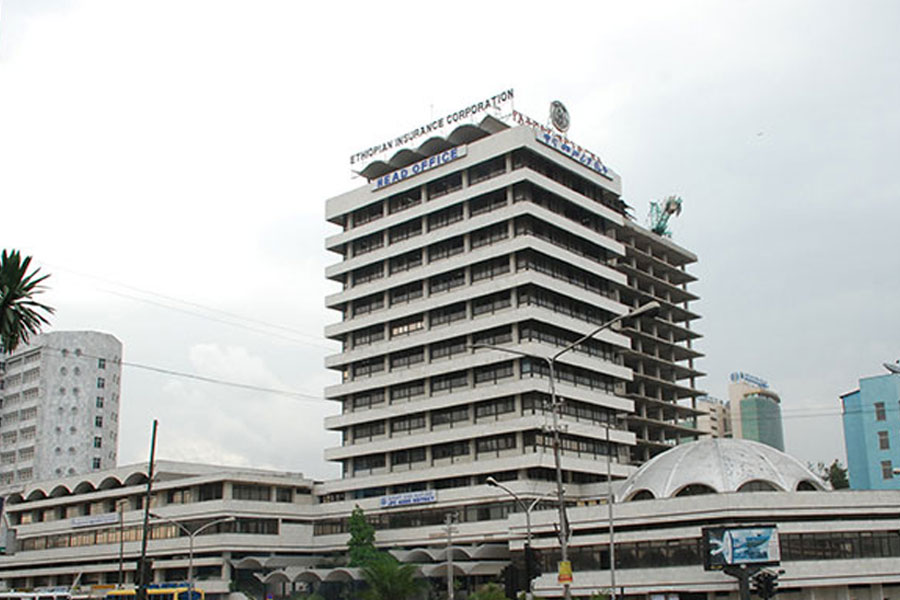
Fortune News | Oct 06,2024
The administration of Prime Minister Abiy Ahmed (PhD) appears keen on introducing some rebalancing in macroeconomic policymaking. Focusing on easing the regulatory environment for businesses and determined to see the creation of jobs - millions of them - it wants to shift the drive from state-centric to private sector led economic growth.
The focus is now on redirecting loans to private borrowers to help them generate export revenues. The hope is to cut further financing to state-owned enterprises to address the issues of exposure to external debt and avoid further escalation in debt amortisation.
Understandably, doing this is not so much a matter of preference. They are left with few other options before the economy crushes in on its own weight. These policy measures, properly executed, will release the so-far dormant potential of the private sector and may propel the country to the next decade of economic growth.
Despite reaching its limits, the journey over the past decade and a half has not been a disappointment. The macroeconomic policy followed with incredible discipline in creating “aggregate demand” has achieved results beyond everyone’s expectation. It is not an exaggeration, to say the least, that it has over-delivered. Ethiopia evolved from being perceived as a poster child of drought, famine and misery to one celebrated globally as the “African Lion.”
However, it has now become clear that the Keynesian model of deploying the state as a force to create aggregate demand has taken the country as far as it can. Should current policymakers bring some rebalancing into the economic model, it can only be understood.
While this may be the right course to take, it is also as important to note that transitioning economies face a myriad of challenges when jumping from one model to another. No doubt, the road ahead will not be a picnic at a park. It is more likely to be a bumpy road.
Moves to deeper privatisation, liberalisation and deregulation are delicate matters that will create winners and losers in an economy. If not handled judiciously and competently, the outcome may even lead to destitution by the majority, and a sense of helplessness and loss of a dignified life for the many. As these processes go forward and state behemoths are being swallowed up by private giants, the threadbare regulatory capacity of the state becomes a big hurdle. While running away from the inefficiencies of state-owned enterprises (SOE), great care needs to be taken not to run into the mouths of predatory forces and vulture investors.
The experiences of transitioning economies in the last 30 years - from Russia to South Africa - bear witness to the fact that there is a real danger of falling prey to state capture.
State capture is a form of grand corruption whereby a small number of interests exercise undue influence over the state apparatus. They do that with the desire to shape a regulatory environment to benefit their interests and partisan agenda. South Africa illustrates a contemporary example of state capture during the presidency of Jacob Zuma. None the less, state capture is a widespread phenomenon from Russia to Asia and from Eastern Europe to Latin America and even the sugar plantations of Florida in the United States.
The main feature this worldwide phenomenon has in common is that all forms of checks and balances in a country fail to restrain it. It is usually because the captors, working behind the scenes with great cunning, manage to neutralise any potential challenge to pursue their interests. They compromise them through various means, ranging from outright vote-buying to secret funding for the incumbent parties and even the media.
In places where there are inefficient public services and unprofessional bureaucracy, as well as weak media laws and lack of freedom of speech and association, forces keen in capturing the state thrive easily. Countries that see the absence of well-run small to medium enterprises; a civil society that is not aggressive and vocal; and the opposition that is pathetically divided are the fertile ground for state captors. If rapid privatisation of assets in the commanding heights of the economy is added into this mix, it creates the ideal conditions for state capture, which will be consequential for a country.
Ethiopia has the advantage of coming late into economic liberalisation, because there are plenty of examples to learn useful lessons from and avoid the pitfalls. One such experience is the importance of beefing up the regulatory capacity of the state. It should start from recognising that merely setting up regulatory agencies and writing thick rule books is not enough.
Not only do these agencies need to be staffed by people with particular expertise in the area they are supposed to regulate, but they also have to have tremendous integrity. Even then, it will be an exercise in futility if the legislative body is not one representing the diversity and differences of interests and desires in society and the judiciary is neither autonomous nor competent.
This is not a fight the state can win by itself.
A community-wide effort is essential. Chambers of commerce and business associations, as well as leaders of labour unions and civil society organisations, need to be vigilant to ensure that the processes of privatisation, liberalisation and deregulation are not taken hostage by special interests.
Without a doubt, the most robust solution and overarching mechanism to fight state capture is creating a culture of transparency. The foundation for building that is liberal checks on the might of the state and those who hold the lever of executive power through the watchful eyes of non-state actors and an independent judiciary.
If the administration is determined to see through its economic reforms to a gainful conclusion, it has to avoid the trap of state capture. That can only happen if it shows a commitment to the building of strong state institutions with robust regulatory capacity.
PUBLISHED ON
Jul 27,2019 [ VOL
20 , NO
1004]

Fortune News | Oct 06,2024

Editorial | Feb 13,2021

Fortune News | May 08,2021

Editorial | Jul 13,2024

Election 2021 coverage | Dec 26,2020

News Analysis | Oct 13,2024

Fortune News | Sep 04,2021

Fortune News | Sep 22,2024

My Opinion | Oct 05,2024

My Opinion | Mar 01,2024

Dec 22 , 2024 . By TIZITA SHEWAFERAW
Charged with transforming colossal state-owned enterprises into modern and competitiv...

Aug 18 , 2024 . By AKSAH ITALO
Although predictable Yonas Zerihun's job in the ride-hailing service is not immune to...

Jul 28 , 2024 . By TIZITA SHEWAFERAW
Unhabitual, perhaps too many, Samuel Gebreyohannes, 38, used to occasionally enjoy a couple of beers at breakfast. However, he recently swit...

Jul 13 , 2024 . By AKSAH ITALO
Investors who rely on tractors, trucks, and field vehicles for commuting, transporting commodities, and f...

Jul 5 , 2025
Six years ago, Ethiopia was the darling of international liberal commentators. A year...

Jun 28 , 2025
Meseret Damtie, the assertive auditor general, has never been shy about naming names...

Jun 21 , 2025
A well-worn adage says, “Budget is not destiny, but it is direction.” Examining t...

Jun 14 , 2025
Yet again, the Horn of Africa is bracing for trouble. A region already frayed by wars...